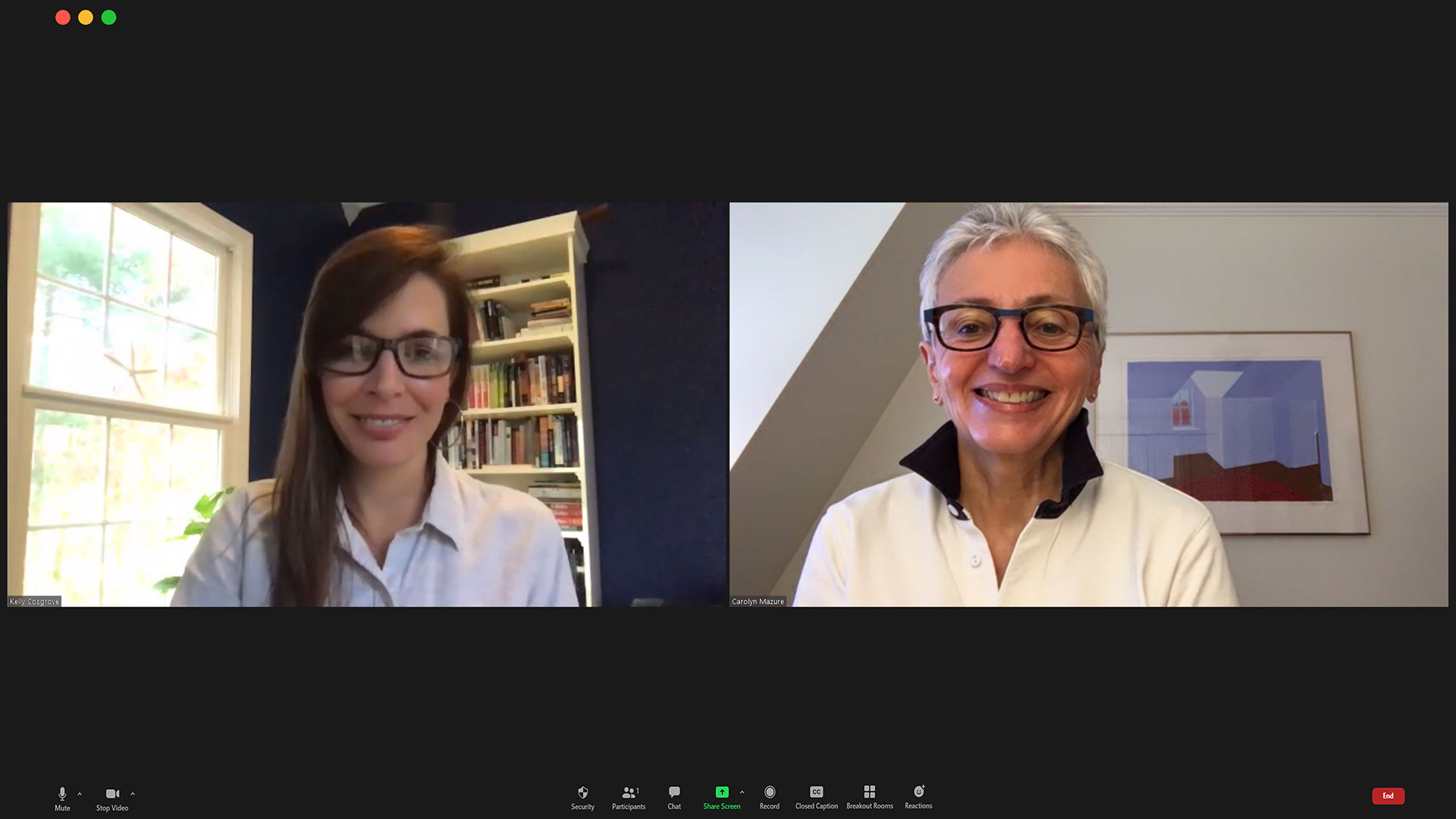A steadily growing body of research over decades demonstrates the value of studying the health of women and how sex and gender influence health. These findings cover a wide variety of diseases and conditions and include sex-and-gender differences in prevalence, risk factors, how diseases and conditions develop over time, and the safety and efficacy of treatments.
However, medical students are not widely taught this data-based information. Women’s Health Research at Yale and Yale School of Medicine’s (YSM’s) Office of Education are changing this.
As part of a larger effort to align Yale’s Medical Student Research Program with federal research requirements, starting with the current class of first-year medical students, the Scientific Inquiry Course taught by the Office of Student Research (OSR) now provides education regarding the importance of including women as research participants and supports the appropriate study of sex and gender.
I am tremendously grateful for Dr. Mazure's vision for how this is valuable, not just for the medical students, but for everyone at Yale and other institutions who will hopefully follow our lead.
Dr. Erica Herzog
In concert with this initiative, research sponsored by OSR — particularly research required for medical student theses submitted in partial fulfillment of the M.D. degree — must now adhere to federal guidelines obligating the inclusion of women in clinical research and that laboratory studies of humans and vertebrate animals include female and male subjects.
In addition, YSM continues to integrate information on sex-and-gender differences into its curriculum, building on efforts spearheaded by WHRY Director Carolyn M. Mazure, Ph.D., over recent years.
“Dr. Mazure has been very proactive and persistent in this effort, providing research and the history behind the need for stressing sex and gender in medical education,” said Dr. Erica Herzog, Associate Dean of Medical Student Research, Professor of Medicine and Pathology, and a key player in adopting the new research requirements. “I am tremendously grateful for her optimism and her vision for how this is valuable, not just for the medical students, but for everyone at Yale and other institutions who will hopefully follow our lead.”
Dr. Sarwat Chaudhry, Associate Dean of Medical Student Research, Associate Professor of Medicine, and Co-Director of the National Clinician Scholars Program, added: “The work being led by Dr. Mazure is critically important to the goals of the Office of Student Research, which include enhancing the rigor of students’ research education.”
This year, Dr. Mazure is teaching a section on “Defining Sex and Gender” in the curriculum with Dr. Kelly Cosgrove, a WHRY-affiliated scientist who presents her research on sex differences in the brain. Dr. Mazure and Dr. Fred Gorelick, Henry J. and Joan W. Binder Professor of Medicine, also held an interactive discussion for M.D./Ph.D. students on the scientific value of studying women and sex-and-gender effects in health. In addition, Dr. Kelsey Martin, Assistant Professor of Clinical Medicine and a practicing oncologist, is mentoring a WHRY undergraduate fellow on a project integrating data on sex differences in Oncology and Hematology into the curriculum.
“This effort is incredibly important,” said Dr. Michael Schwartz, Associate Professor of Neuroscience and Associate Dean for Curriculum in YSM’s Office of Education. “WHRY is helping us to raise awareness and think about the best methods for getting this content into the curriculum.”
Dr. Schwartz praised WHRY’s collaboration with Dr. Njeri Thande, who worked with WHRY fellows and YSM students on a study published in 2019 showing few discussions of sex-and-gender content in lectures and workshops.
“You cannot overestimate the value of a center like WHRY and a leader like Carolyn,” Schwartz said. “Beyond focusing appropriate research attention on sex and gender, she creates an atmosphere and a willingness to mentor junior faculty members to make sure this important information ends up in the curriculum.”
